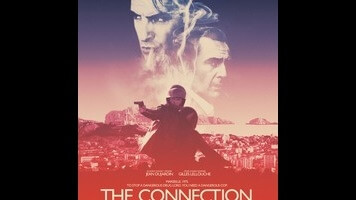The Connection is a cops-and-crooks movie you’ve seen many times before

Released in France, amusingly, as La French, Cédric Jimenez’s The Connection picks up where 1971’s The French Connection left off, detailing the authorities’ laborious efforts to shut down the flow of heroin from Turkey through the port of Marseille and into the U.S. (It took a while: This movie’s action continues into the ’80s.) As structured here, however, the saga doesn’t resemble William Friedkin’s classic so much as it does Michael Mann’s Heat—that is, were Heat largely stripped of narrative excitement, directorial panache, and movie-star charisma. Without a hair-trigger renegade like Popeye Doyle or a long-awaited De Niro-Pacino showdown at its center, this procedural account, running well over two hours, takes on a certain plodding, obligatory vibe. It doesn’t help that its hero and antihero are so physically and temperamentally similar that the actors playing them could probably have swapped roles midway through principal photography without anyone noticing or caring.
Representing law and order is dogged cop (technically “magistrate”) Pierre Michel (Oscar winner Jean Dujardin, from The Artist), who’s plucked from the relative obscurity of handling juvenile drug offenses and promoted to point man in the battle to take down the French Connection. Michel’s main adversary is Gaëtan Zampa (Gilles Lellouche), known as “Tany,” though Zampa doesn’t ever really do much of anything apart from bark orders at underlings. Jimenez gives the two men an equivalent of Heat’s famed diner scene, having Michel and Zampa face off in person just once, smack in the middle of the film, standing beside the edge of a cliff for added tension. Rather than a philosophical discussion, however, their macho staring contest consists of barely veiled threats, and afterwards the years and fashions tick on as Michel keeps breathing down Tany’s neck, too intent on getting his man to be concerned about his own safety.
Sadly, that task falls to Michel’s long-suffering wife, Jacqueline (Céline Sallette, squandered), who spends the entire movie complaining about the toll his dedication to his job is taking on their family, as if she hasn’t sat through dozens of cop movies featuring that same tiresome marital cliché. Too much of The Connection feels similarly warmed over, from its conflation of cop and criminal—two sides of the same coin, yet again—to its portrait of casual police corruption and wanton gangster destruction. Dujardin struggles to bury his natural charm and play it rugged, but can’t help allowing a touch of insouciance to steal across his face now and then, which helps distinguish his performance from Lellouche’s constant glowering. Sharp period detail and behind-the-scenes machinations (including the pressure Michel brings to bear by targeting the families of Zampa’s soldiers) prevent the film from completely flatlining, but Jimenez, making his second feature, fails to provide the regular jolts of electricity this material needs. He’s taken a phrase—“The French Connection”—that used to convey danger and made it routine.